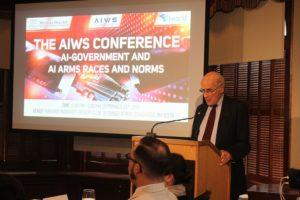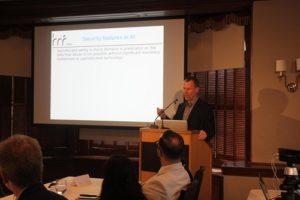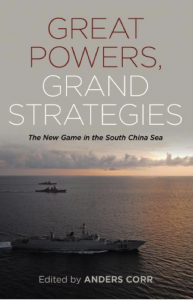Vietnam Vet & author Dick Pirozzolo says vets are good hires
 November 11, Veterans Day is set aside to honor those of us who served in the armed forces. There may be parades, flag waving, speeches, ceremonies dedicated to American military people and there’ll even be free pizza and coffee at chain restaurants.
November 11, Veterans Day is set aside to honor those of us who served in the armed forces. There may be parades, flag waving, speeches, ceremonies dedicated to American military people and there’ll even be free pizza and coffee at chain restaurants.
As well as the occasional: “Thank you for your service,” from fellow Americans.
In addition to the niceties, I can’t think of a better way to honor and thank our veterans, than to make sure they come home to a job that recognizes the skills they acquired in the military. Things have changed for the better. When Vietnam veterans returned, we met resistance from potential employers who wrongly claimed military people are too regimented, unfamiliar with latest civilian technology, and can’t think for themselves. Sometimes, opposition to the war resulted in opposition to veterans.
There were also creative ways of calling vets “losers” back then. In one case, a reporter for The Boston Herald wrote that she went to the Pine Street Inn – a Boston homeless shelter — to get “the veterans’ point of view.” Never mind that John Kerry and the CEO of State Street Bank were veterans, who were hardly residing at the Pine Street Inn.
During a job interview, a potential employer discounted my entire military experience by asking: “Don’t you feel your career doesn’t really start until after the service?”
It was as though my four years in the U.S. Air Force didn’t exist. Fortunately, I learned my craft, public relations and journalism, in the Air Force through formal schooling, at the Defense Information School (DINFOS), and on-the-job training. The Worcester Telegram & Gazette recognized my capability and hired me right away. A year later the late Jack Star, a former McGraw Hill foreign correspondent, who headed up PR at Boston University, hired me for the international media relations skills I had acquired as an Air Force press officer in Saigon.
Though specific job skills are important, veterans come home with general leadership and management skills, and other qualities that are a huge benefit to civilian employers.
Leadership. Whether officer or enlisted, the military does not hold back when it comes to putting you in charge and, often in situations that are way above the job description. To be sure, I made plenty of mistakes when I was a second lieutenant, but the most valuable lessons I learned was to listen and learn from the enlisted folks who had years of experience and technical skills far superior to mine.
Military people take an oath. Most folks don’t go around thinking about the oath they took when the signed up, but it underscores commitment. In a nutshell, once a soldier signs up, he or she can’t say, “I quit” and walk out on the boss or colleagues.
Diversity and equal rights. The armed forces are not without problems when it comes to gender and race and, in most cases, commanders deal with sexual misconduct and discrimination quickly and definitively. Despite the occasional scandal, which are not to be minimized, the military has been out in front on race relations that began with the full integration of our armed forces after World War II and ongoing efforts since then that include the integration of the LGBT community into the military.
Simply put, rank matters. Race and sex do not. No one tells the female lieutenant to make coffee or the African-American captain to make photocopies!
The ability to improvise. When a four-man squad goes on patrol, there may be command and control from headquarters, but the squad leader, probably a young 20ish soldier, will make hundreds of life-and-death decisions to complete the mission and return everyone safely.
Completed staff work “Hey boss what do you want me to do now?” Putting the monkey on the boss’s back is no-no in the military as the armed forces adhere to the doctrine of completed staff work with all projects and challenges.
When a team has a job to do, the job is completed totally before presenting the results to the manager who delegated the responsibility. Of course, not every project goes according to plan and obstacles come up. In those cases, the presentation has to be sufficiently complete so that, if more information is needed, all a supervisor has to do is sign a request.
One of the hard-and-fast rules team members learn is they cannot go directly to their supervisor to get partial approval, or to lobby for their own solution to a problem independently. This cuts down on a lot of office politicking and backbiting.
Chain of command. This might be anathema to a lot of current management thinking, but the principle avoids a lot of ill will. In the military trying to curry favor with one’s boss’s boss usually ends badly.
Likewise, the military insists that when you give an order it comes from you no matter where it originated. Military folks don’t give whinny orders like: “I wouldn’t make you do this, because I’m nice, and I want you to like me, but the big boss insists soooo ….”
Empathy. The military is often a matter of life and death and people can be together 24/7 where the division between work and off-duty life does not exist. I was always in awe of leaders who could navigate the murky waters of their people’s personal and family issues, while staying focused on the mission. It’s a complex skill that is well taught in the military and applicable to civilian employment.
The Marines often teach leadership through what are called sea stories that underscore the risky decisions and dilemmas one must face in combat such as: do you risk two Marines’ lives to bring back few cases of cold Coke to improve everyone’s morale or do you not take the chance? The outcome is not nearly as important as opening debate on the leaders’ decision-making process.
Honesty. “I will not lie cheat or steal or tolerate anyone among us who does.” We’ve all heard the mantra, but what it means is that military people learn to both delegate and trust the people who work for them without reservation. If someone says, “I counted all the M-16s and there are 46 of them,” you can, without checking up, sign a document confidently endorsing the count.
Learning in public. From basic to advanced training fellow students may compete for class rank, but they pull everyone up with them. Then the whole team wins.
Can-do spirit. Military folks believe they can achieve anything. After returning from Vietnam, I served with the 253 Combat Communication Group in the Massachusetts Air National Guard. We could install all the navigation, air traffic control and communication needed for a temporary airfield, while the Navy Seabees, built the runway and erected tents for the whole lot of us. Done quickly and as a matter of routine.
And consider going the extra mile. I’m still in awe of Mike Cotton, who created the China Beach Surf Club in the midst of the Vietnam war so that airmen and soldiers could get a taste of home when they were off duty.
Dick Pirozzolo is a Vietnam veteran and coauthor, with Michael Morris of “Escape from Saigon – a Novel” (Skyhorse Publishing, New York, 2017). He is also managing director of Pirozzolo Company Public Relations and a member of the Harris Communications Group, which publishes New Cambridge Observer




